The Bee Hives stood sentinel where the young ones played.
A courtyard where two beehives stood attention between a fig tree and a breezeway that led from a kitchen work area to a bathroom with a window that opened to a well, was the center of my existence at the time.
I was five years old, I remember, because it was the year my mother presented me with one more sister, and it was also the year I started kindergarten.
On the far end, this gardened area was bounded by a brick wall, five feet tall, and this separated the hustle and bustle of a road that went from the center of Trivandrum town to the Chalai market, and on to the main highway which took you all the way to the southern tip of India, Kanya Kumari, also known as Cape Coumarin.
The opposite end of this garden was defined by the above mentioned breezeway. Parapet walls on both sides of this breezeway provided welcome seating. My three year old sister Shanthi and I sat on these low walls, and watched my Amma, my mother, and her sister, my ammachi, tend their garden. We saw all sorts of flowers, touting a variety of colors from the sparkling white jasmines to the pale lavender cosmos, and the smooth petals of the pink roses that contrasted with the prickly thorns which effectively kept them safe from two busy little girls who could not keep their hands off of any blooming thing. The pleasant bouquet of jasmines and roses blended with the strong scents of chrysanthemums. The pink oleanders were excluded from this area because their pungent odor was not welcome here. They were planted in the front yard where their huge bushes rubbed shoulders with the mighty hibiscus plants.
To the left of us, as we perched on the low parapet walls, were two long steps leading to a door of my Doctor ammoomma’s bedroom, and beside her bed and dresser was a table where her stethoscope rested when she was home. Shanthi and I slept in her room too, on mattresses that were spread out on the floor at bedtime, and were rolled and put away during the day. Also on the floor, our Adukkala ammoomma, Kitchen grandmother, slept beside us. Although I was aware she oversaw the kitchen ladies at their tasks, (hence the name kitchen grandmother), and managed the chores of the errand boy who went to the market for fish every day, I felt that she was my own guardian angel who looked after me. She made sure I ate the last ball of rice and curds on my plate that my Amma made for me. She urged me to finish my daily alphabet-writing-practice before I got into trouble with my Ammachi when she returned from the University where she worked. I digress.
The bathroom wall formed the fourth boundary for this delightful corner of my world at five. Entering the bathroom from the breezeway, you saw a window in the wall to the right. This window opened to a well, all complete with a bucket on a rope and pulley, used to draw water on to a huge clay pot set atop a wood-burning stove to heat the water for bathing. When the window was closed for privacy, the rope and bucket were swung out to the outer half of the water-well, where the amenities included separate areas for washing clothes, and for washing kitchen pots and utensils. There was a spot here as well for cleaning the fresh fish from the market, sometimes twice in one day.
I was fascinated by the way the wood-burning stove used for heating the bathwater was set half inside and half outside the bathroom wall, and the wood was fed from outside the bathroom. A chimney setup above this stove took the smoke out of the bathroom itself. Looking back, the ingenuity and the engineering were marvels that I was of course too young to appreciate.
Back to the bee hives. Every three months or so, the theineechakaran, honey-man, came. He wore a khaki colored pant-suit and muddy boots covering his entire body. He placed a large rimmed hat on his head, and pulled down the protective netting around his face and neck. Long gloves completed his work habit.
We had to watch him from Doctor Ammoomma’s bedroom window while he expertly smoked the bees into a box he carried. Once the queen bee was in his trap, he waved to us. We were then allowed to go out and see how he gingerly picked up honey combs, placed them in his barrel with a handle on the outside that he cranked. It was a manual centrifuge of sorts, and it extracted the honey into dripping pans, through cotton-lined sieves. When one hive was done, he would give us pieces of the honeycomb to suck out drops of sticky golden-brown honey from the crannies. Then he waved his big hands to chase us back in, and proceeded to retrieve the honey from the second one. Once we had some honey to savor, we lost interest in the proceedings.
But, to finish our lesson, Ammachi called us back to see the honey-man place the queen bee back into the center of the bee hive. We were surprised how the remaining bees swarmed back in without further ado. Ammachi did not waste any occasion to feed our brain, even as our tummies were fed.
And then she picked off the tiny wax particles which got stuck on our teeth from the honeycombs.
The fig tree only gave fruit occasionally, probably once or twice a year. I am not quite certain. But each time it did, the anticipation on ammachi’s face as she awaited their ripening was a family joke. When the fruit reached a certain size, she wrapped them with gauze to protect them from the crows. Each ripe fruit was tenderly sliced, and she ruefully shared them with us. I still remember my amma declining her share, so that ammachi, her sister could have more. They were close, then.
My Gardens in this part of the continent, with its harsh winters, could not sustain the tropical blooms nor a fig tree. They thrive in my heart and mind, always.
At times, in the deep freeze of January, when grey skies cloud over me and all of Chicago-land is blanketed by miles and miles of white snow, when even the green tops of tall evergreens have turned snow-white, the chill seeps into my heart and drags me down. I close my eyes and see the patch of sunlight upon the beehives, and hear my ammachi calling, “Pāāpa –, thein veno?” (Pāāpa, that’s me, do you want some honey?), and my whole being warms up with the love from that sunny corner of the earth decades ago.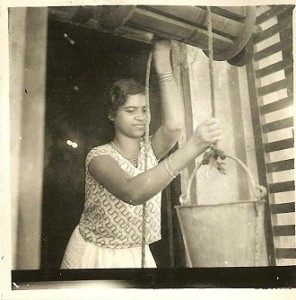
My Amma at the well
Shaku Rajagopal
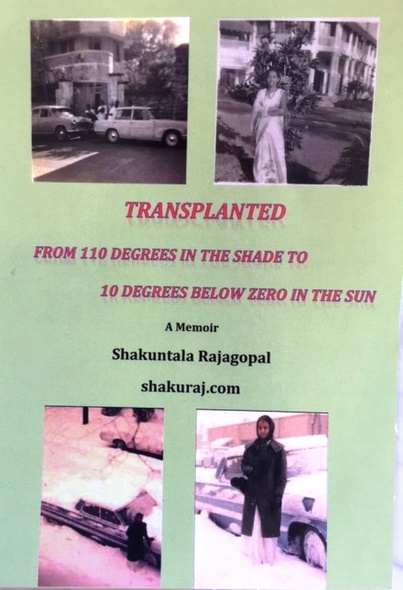

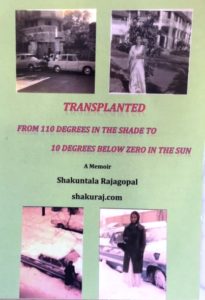
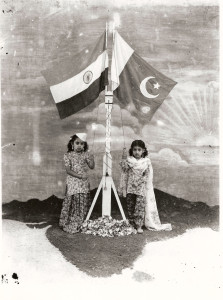
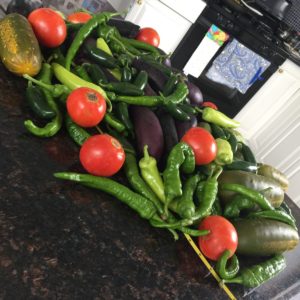
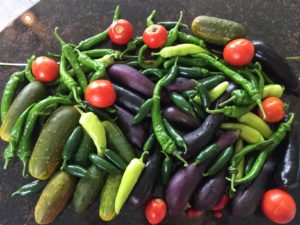

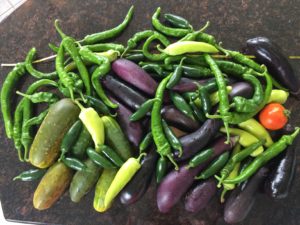

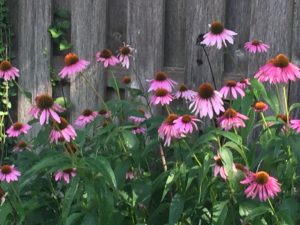


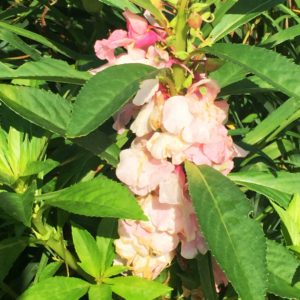
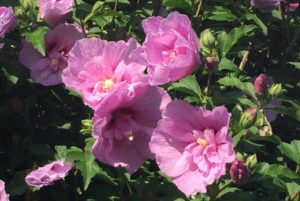
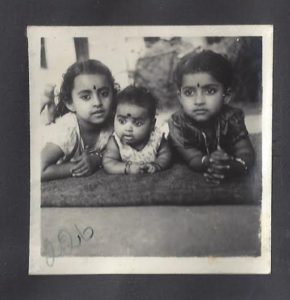
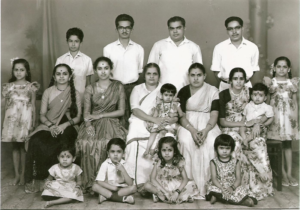
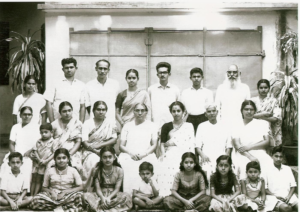
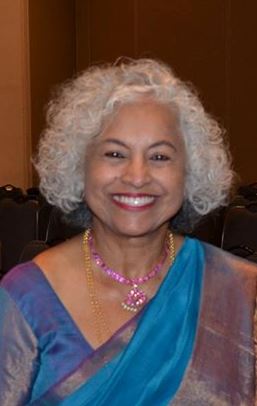 pleasurable and not so enjoyable, to use the knowledge I can share and still come out smiling, loving and enjoying life and the people around me.
pleasurable and not so enjoyable, to use the knowledge I can share and still come out smiling, loving and enjoying life and the people around me.